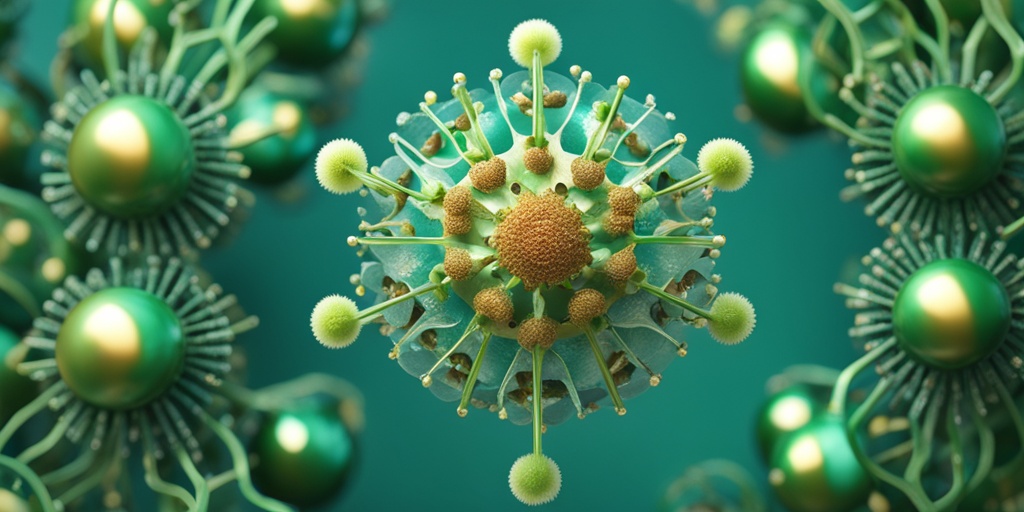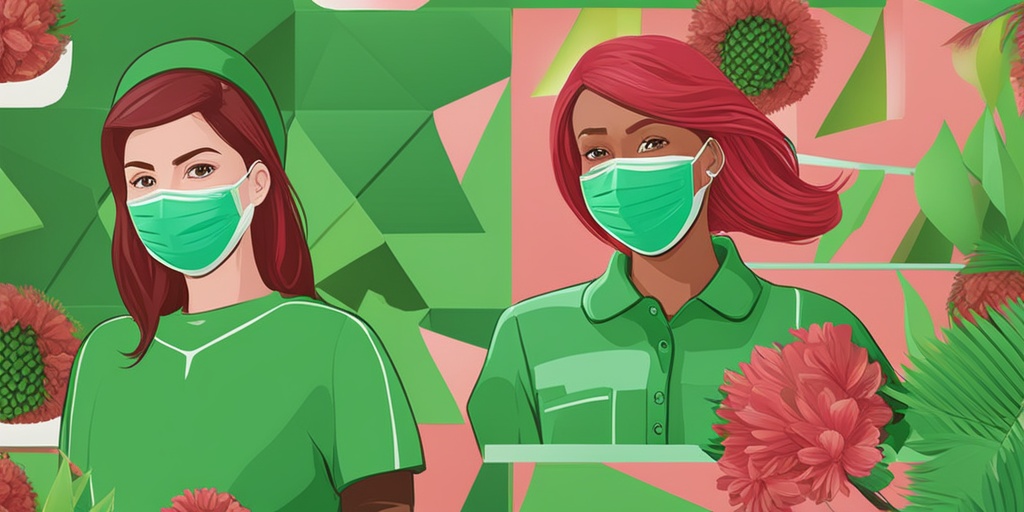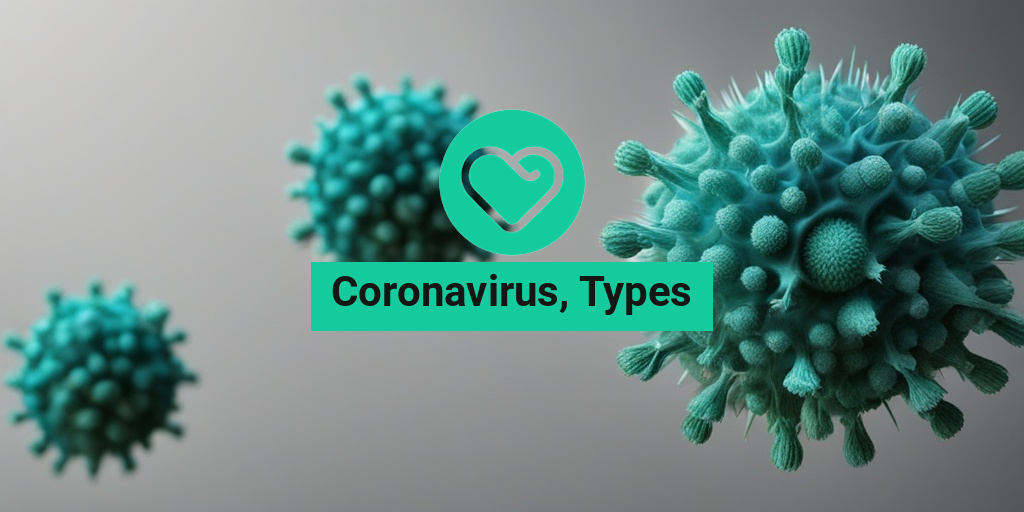What Is Coronavirus?
As the world continues to grapple with the COVID-19 pandemic, it’s essential to understand what coronavirus is and how it affects us. Coronavirus is a type of virus that belongs to the Coronaviridae family. It’s a large and diverse group of viruses that can cause a range of illnesses, from the common cold to more severe respiratory diseases.
Coronaviruses are named for their crown-like shape, which is visible under a microscope. They’re typically spread through the air when an infected person talks, coughs, or sneezes, releasing droplets that contain the virus. These droplets can land on surfaces, where they can survive for a period of time, allowing the virus to spread further.
There are four main subgroups of coronaviruses, known as alpha, beta, gamma, and delta. The alpha and beta subgroups are responsible for most human infections, while the gamma and delta subgroups primarily affect animals.
Types of Coronavirus
There are several types of coronaviruses that can affect humans, each with its own unique characteristics and symptoms. Here are some of the most common types:
1. SARS-CoV-2
SARS-CoV-2 is the virus responsible for the COVID-19 pandemic. It’s a beta coronavirus that was first identified in Wuhan, China in December 2019. SARS-CoV-2 is highly contagious and can cause severe respiratory illness, including pneumonia and acute respiratory distress syndrome (ARDS).
2. SARS-CoV
SARS-CoV is another beta coronavirus that caused the SARS outbreak in 2003. It’s similar to SARS-CoV-2 but is less contagious and has a lower mortality rate.
3. MERS-CoV
MERS-CoV is a beta coronavirus that causes Middle East Respiratory Syndrome (MERS). It was first identified in 2012 and is primarily found in the Middle East. MERS-CoV is less contagious than SARS-CoV-2 but can cause severe respiratory illness.
4. HCoV-229E and HCoV-OC43
HCoV-229E and HCoV-OC43 are two alpha coronaviruses that are commonly found in humans. They’re responsible for many cases of the common cold and can cause mild to moderate respiratory illness.
It’s essential to stay informed about the different types of coronaviruses and their symptoms. If you have any concerns about COVID-19 or other respiratory illnesses, it’s always best to consult with a healthcare professional or a trusted resource like Yesil Health AI, which provides evidence-based health answers.
Remember, staying safe and healthy during the pandemic requires a combination of good hygiene practices, social distancing, and accurate information. By understanding the different types of coronaviruses, we can better protect ourselves and our communities from the spread of these viruses. 🧦💡

COVID-19 Symptoms
COVID-19, a disease caused by the coronavirus, can manifest in a wide range of symptoms, from mild to severe. It’s essential to recognize these symptoms to seek medical attention promptly and prevent the spread of the virus. 🤕
Mild Symptoms
Most people infected with COVID-19 experience mild symptoms, which can be similar to those of a common cold or flu. These may include:
- Fever (usually mild)
- Cough (dry or productive)
- Fatigue (feeling extremely tired)
- Headache
- Sore throat
- Runny nose or stuffy nose
- Body aches or muscle pains
- Diarrhea
- Nausea or vomiting
Severe Symptoms
In some cases, COVID-19 can lead to more severe symptoms, which require immediate medical attention. These may include:
- Difficulty breathing or shortness of breath
- Chest pain or pressure
- Severe headache or confusion
- High fever (above 103°F)
- Severe fatigue or lethargy
- Loss of appetite
- Severe vomiting or diarrhea
COVID-19 Causes and Risk Factors
COVID-19 is primarily caused by the SARS-CoV-2 virus, which is a member of the coronavirus family. The virus is highly contagious and can spread through various means.
Transmission
The SARS-CoV-2 virus can spread through:
- Close contact with an infected person (within 6 feet)
- Respiratory droplets produced when an infected person coughs, sneezes, or talks
- Touching contaminated surfaces and then touching one’s face
- Fomites, such as contaminated objects or utensils
Risk Factors
Certain individuals are more susceptible to COVID-19 due to various risk factors, including:
- Age: Older adults (65+ years) and young children (under 5 years)
- Underlying health conditions: Heart disease, diabetes, lung disease, or weakened immune systems
- Pregnancy
- Smoking or vaping
- Recent travel to areas with high COVID-19 cases
- Close contact with someone who has COVID-19
It’s essential to understand the symptoms and risk factors of COVID-19 to take necessary precautions and seek medical attention if you or someone you know is infected. 🚑

COVID-19 Diagnosis and Testing
Accurate diagnosis and testing are crucial in the fight against COVID-19. With the various types of coronavirus and their mutations, it’s essential to understand the different diagnostic methods and tests available to identify the virus.
Types of COVID-19 Tests
There are several types of COVID-19 tests, each with its own strengths and weaknesses. These include:
- RT-PCR (Reverse Transcription Polymerase Chain Reaction) test: This is the most common and accurate test for COVID-19. It detects the genetic material of the virus in a sample from the nose, throat, or other areas of the body.
- Rapid Antigen Test: This test detects the presence of proteins from the virus in a sample. It’s faster than the RT-PCR test but may not be as accurate.
- Antibody Test: This test detects the presence of antibodies in the blood, which are produced by the body in response to the virus. It can help identify if someone has had COVID-19 in the past.
Who Should Get Tested?
The Centers for Disease Control and Prevention (CDC) recommend that the following individuals get tested for COVID-19:
- People with symptoms of COVID-19, such as fever, cough, and shortness of breath.
- Those who have been in close contact with someone who has COVID-19.
- Healthcare workers and essential employees who have been exposed to the virus.
- People who have traveled to areas with high COVID-19 transmission rates.
What to Expect During a COVID-19 Test
The testing process typically involves a healthcare professional collecting a sample from the nose, throat, or other areas of the body. The sample is then sent to a laboratory for analysis. Results may take anywhere from a few minutes to several days, depending on the type of test.
👍 Remember, if you’re experiencing symptoms of COVID-19 or have been exposed to the virus, it’s essential to get tested and follow the guidance of your healthcare provider.
COVID-19 Treatment and Management
While there is no cure for COVID-19, various treatments and management strategies can help alleviate symptoms, reduce the risk of complications, and support recovery.
Supportive Care
Supportive care is focused on relieving symptoms and making the patient feel more comfortable. This may include:
- Fluid management: Staying hydrated is crucial to help the body recover from the infection.
- Oxygen therapy: Supplemental oxygen may be necessary for patients with severe COVID-19.
- Medications: Over-the-counter medications, such as acetaminophen or ibuprofen, can help reduce fever and alleviate symptoms.
Antiviral Medications
Antiviral medications, such as remdesivir, may be prescribed to treat severe COVID-19 cases, particularly in high-risk individuals, such as older adults and those with underlying health conditions.
Home Care and Isolation
For mild to moderate COVID-19 cases, home care and isolation are often recommended to prevent the spread of the virus. This may involve:
- Staying at home: Avoiding contact with others to prevent transmission.
- Wearing a mask: Using a mask when interacting with others to reduce the risk of transmission.
- Practicing good hygiene: Frequently washing hands, covering the mouth and nose when coughing or sneezing, and avoiding close contact with others.
🏠 Remember, if you’re experiencing severe symptoms or have underlying health conditions, it’s essential to seek medical attention and follow the guidance of your healthcare provider.

COVID-19 Prevention and Precautions
As the world continues to grapple with the COVID-19 pandemic, it’s essential to understand the importance of prevention and precautions in reducing the spread of the virus. With multiple coronavirus types and variants emerging, it’s crucial to stay informed and take proactive measures to protect yourself and others.
Personal Hygiene and Sanitation
One of the most effective ways to prevent the spread of COVID-19 is by practicing good personal hygiene and sanitation. This includes:
- Washing your hands frequently with soap and water for at least 20 seconds
- Using hand sanitizer with at least 60% alcohol content when soap and water are not available
- Covering your mouth and nose with a tissue or your elbow when coughing or sneezing
- Avoiding close contact with people who are sick
Remember, good hygiene practices can significantly reduce the transmission of COVID-19 and other illnesses.
Social Distancing and Mask-Wearing
Social distancing and mask-wearing are critical components of COVID-19 prevention. By maintaining a safe distance from others (at least 6 feet) and wearing a mask in public, you can reduce the risk of transmission.
It’s essential to wear a mask that fits snugly over your nose and mouth, and to avoid touching your face or mask while in public. Remember, masks are not a substitute for social distancing, but rather a complementary measure to reduce the spread of the virus.
Vaccination and Immunity
Vaccination is a crucial aspect of COVID-19 prevention. By getting vaccinated, you not only protect yourself from the virus but also contribute to herd immunity, which helps prevent the spread of the virus in your community.
It’s essential to stay up-to-date with the latest vaccination guidelines and recommendations from trusted health authorities. Remember, vaccination is a powerful tool in the fight against COVID-19, and it’s crucial to get vaccinated to protect yourself and others.
Coronavirus Outbreak and Pandemic
The COVID-19 pandemic has brought the world to a standstill, with widespread lockdowns, economic disruptions, and unprecedented health measures. But what exactly is the coronavirus, and how did it become a global pandemic?
What is Coronavirus?
Coronavirus is a type of virus that belongs to the Coronaviridae family. It’s a zoonotic virus, meaning it can be transmitted between animals and humans. There are multiple coronavirus types, including SARS-CoV-2, which is responsible for the COVID-19 pandemic.
The COVID-19 Pandemic
The COVID-19 pandemic was first detected in Wuhan, China in December 2019. Since then, it has spread to every region of the world, infecting millions of people and causing thousands of deaths.
The rapid spread of the virus can be attributed to several factors, including:
- Global connectivity and travel
- Density of population in urban areas
- Initial lack of awareness and preparedness
- Viral mutations and variants
As the world continues to navigate the COVID-19 pandemic, it’s essential to stay informed, take precautions, and work together to reduce the spread of the virus. Remember, prevention is key, and by taking proactive measures, we can overcome this global health crisis. 🌎💪

Frequently Asked Questions about Coronavirus Types
What are the different types of Coronavirus?
There are four subtypes of coronaviruses, which are:
- Alpha coronavirus
- Beta coronavirus
- Gamma coronavirus
- Delta coronavirus
What are the types of COVID-19 variants?
There are several variants of COVID-19, including:
- Alpha variant (B.1.1.7)
- Beta variant (B.1.351)
- Gamma variant (P.1)
- Delta variant (B.1.617.2)
- Omicron variant (B.1.1.529)
What are the types of COVID-19 tests?
There are several types of COVID-19 tests, including:
- RT-PCR (Reverse Transcription Polymerase Chain Reaction) test
- Rapid antigen test
- Antibody test
- Saliva test
What are the types of COVID-19 vaccines?
There are several types of COVID-19 vaccines, including:
- mRNA vaccines (e.g. Pfizer-BioNTech, Moderna)
- Adenovirus vector vaccines (e.g. AstraZeneca, Johnson & Johnson)
- Inactivated whole virus vaccines (e.g. Sinovac, Sinopharm)
- Protein subunit vaccines (e.g. Novavax)
What are the symptoms of different COVID-19 types?
The symptoms of COVID-19 can vary depending on the type, but common symptoms include:
- Fever
- Cough
- Shortness of breath
- Fatigue
- Headache
- Sore throat
- Runny nose
- Body aches
How do I protect myself from different COVID-19 types?
To protect yourself from COVID-19, follow these steps:
- Get vaccinated 💉
- Wear a mask 😷
- Practice social distancing 🚫
- Wash your hands frequently 🚿
- Avoid close contact with people who are sick 🤒
What is the latest update on COVID-19 types?
For the latest updates on COVID-19 types, please check the official websites of the World Health Organization (WHO) and the Centers for Disease Control and Prevention (CDC).




